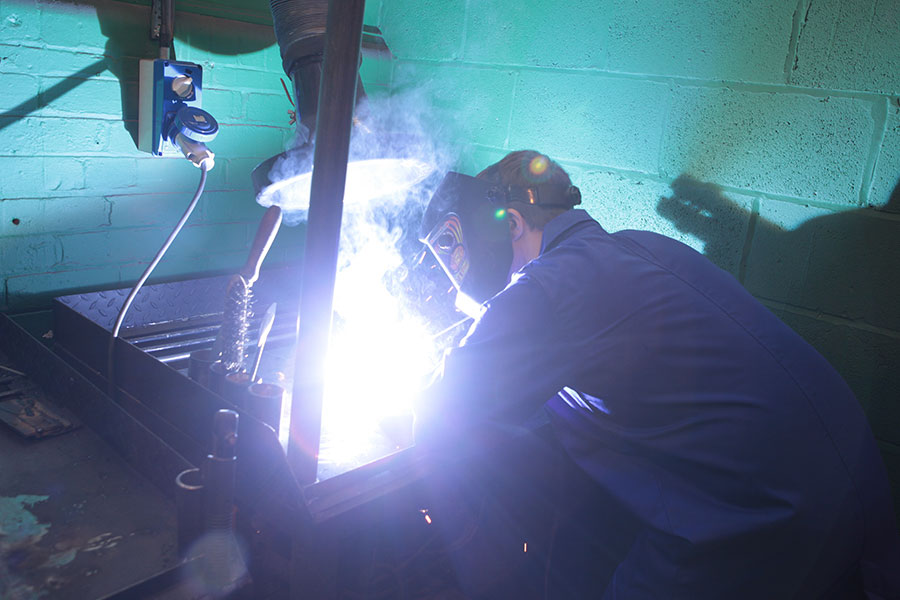
This occupation is found in cross sector (e.g. Automotive, Food & Drink, Oil & Gas, Pharmaceutical, and Construction), companies involved in manufacturing (discrete or process), and logistics or utilities environments. These employers may be directly involved in these activities or as a provider of services (e.g. systems integration, field service, technical consultancy) to these companies.
Engineering Operatives are predominantly involved in engineering operations which are key to the success of the Manufacturing and Engineering sector allowing employers to grow their business while developing a work force with the relevant skills and knowledge to enhance the sustain the sector.
Aerospace Manufacturing Fitters are predominantly involved in highly skilled, complex and specialist detailed work, assembling aircraft systems according to specific work instructions, using relevant hand and machine tools, jigs and measuring equipment. They also install and test aircraft electrical/mechanical/electromechanical equipment and systems according to specific work instructions, using relevant hand tools, installation, and testing methods and techniques.
Engineering design and draughtspersons produce designs and drawings for structures, piping, electrical systems, control and instrumentation systems and mechanical components used in industrial and commercial construction. Typically, jobholders work in a wide range of industries of national importance including power and water infrastructure, petrochemical, oil and gas, nuclear, food and drink processing.
This occupation is found in manufacturing and process sectors. The broad purpose of the occupation is to produce complex high value, low volume components or assemblies in full or part, using machines, equipment or systems, to the required specification. For example, turbines, cranes, gearboxes, production lines, rigs and platforms. Fitters may typically have a mechanical, electrical, electronic, control systems, pipe fitting or instrumentation bias or operate across multiple disciplines depending on the type of assembly.
This occupation is found in large and small engineering and manufacturing organisations providing products and services throughout a wide range of sectors, such as Automotive, Aerospace/Airworthiness, Chemical Processing, Land Systems, Marine, Maritime Defence, Materials Manufacturers and their respective supply chains. Research indicates that the sector needs to recruit approximately 124,000 engineers and technicians every year
Process Operators work in the manufacturing sector of the Food and Drink Industry. They may be employed in a company that specialises in one type of product, e.g. ready meals, soft drinks or confectionary, or in a company that makes a wide range of different products. Process Operators typically work on production lines within food manufacturing plants. Industry uses excellent manufacturing processes and highly automated equipment and technology to ensure it remains competitive, and produces food and drink products to strict food safety and quality standards.
Food and Drink Advanced Process Operators work in one of the largest, most dynamic and fastest growing sectors of industry. Every day, producers, manufacturers and retailers make and sell millions of innovative food products to consumers in the UK and around the world. This includes drinks, cakes, biscuits, ready-to-eat and ready-to-cook food, sandwiches, wraps, fresh fruit and salads. It is imperative that apprentices in the industry have the skills and knowledge to ensure our food products, which millions of people consume every day, are safe.
Maintenance Technicians will maintain the safety, integrity and effective operation of plant and equipment in one or more of the following Industries that are part of or have activities that are part of the broader national infrastructure Engineering Sector: the electricity generating environment, which may use a range of different fuels including coal, gas, nuclear, wind and other renewable sources; telecommunications power plants; oil and gas refining; nuclear waste reprocessing; processing and production of chemicals; pharmaceuticals; human and animal food; cosmetics; petrochemicals; sewerage and the exploration and exploitation of oil and gas.